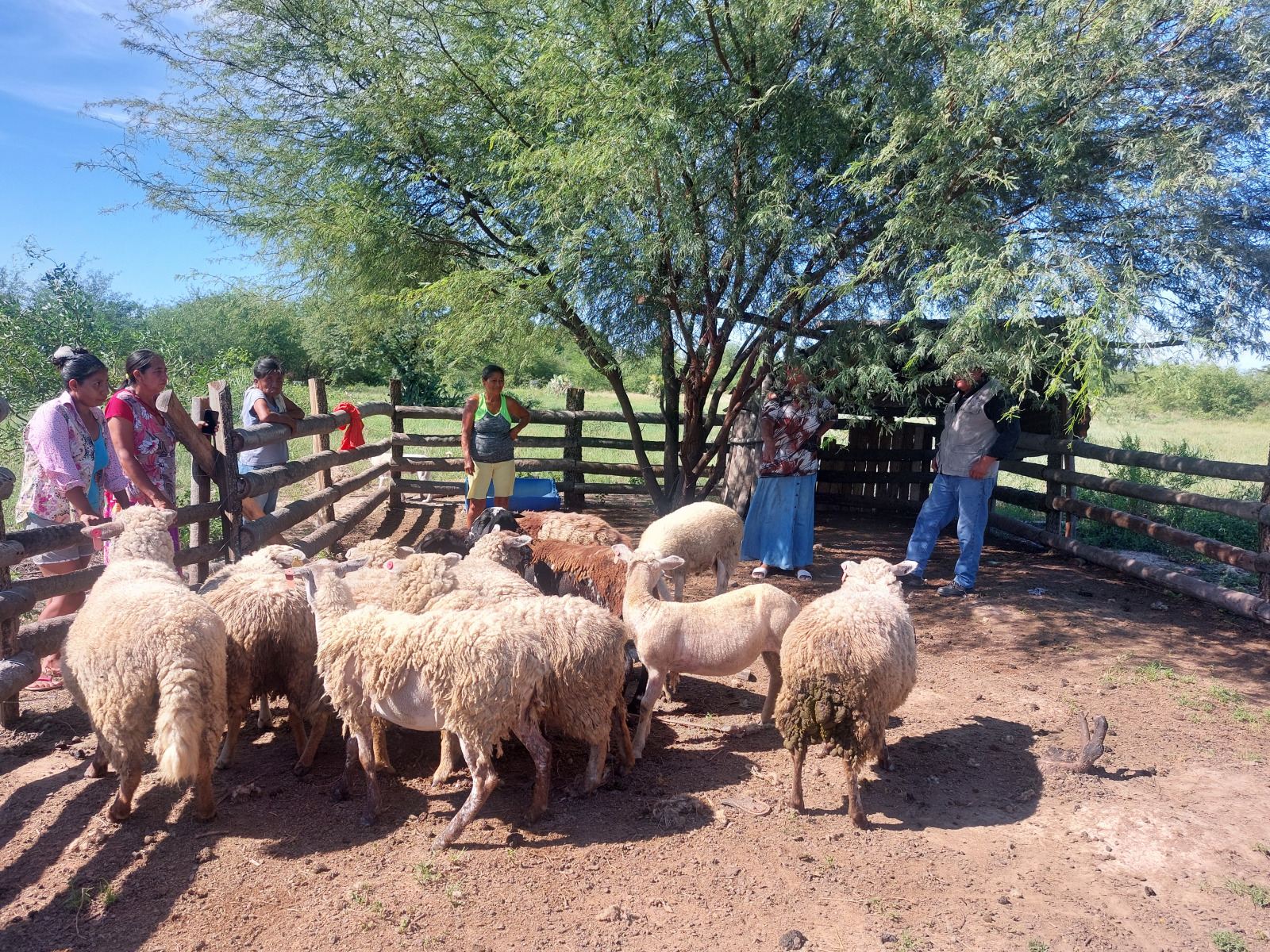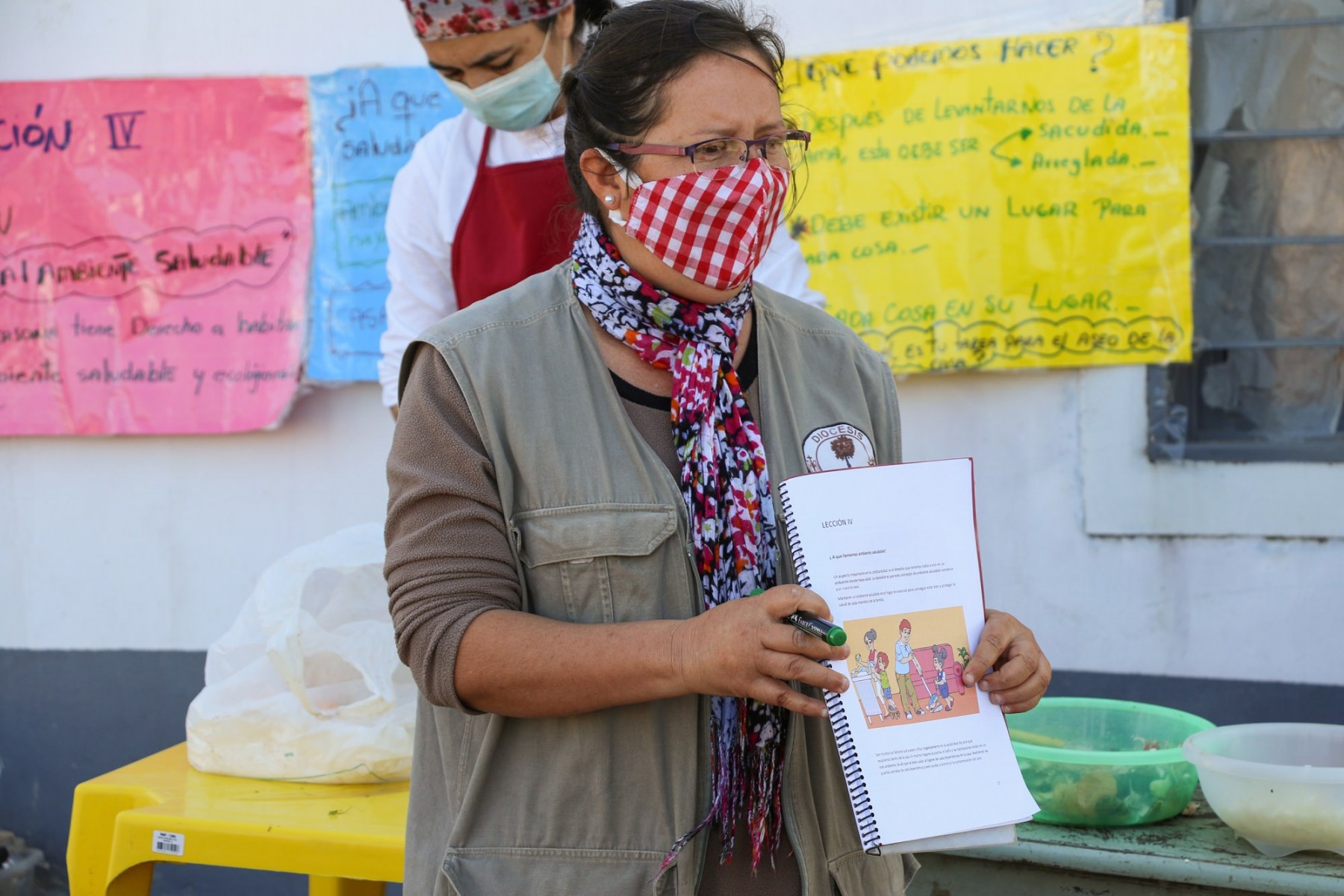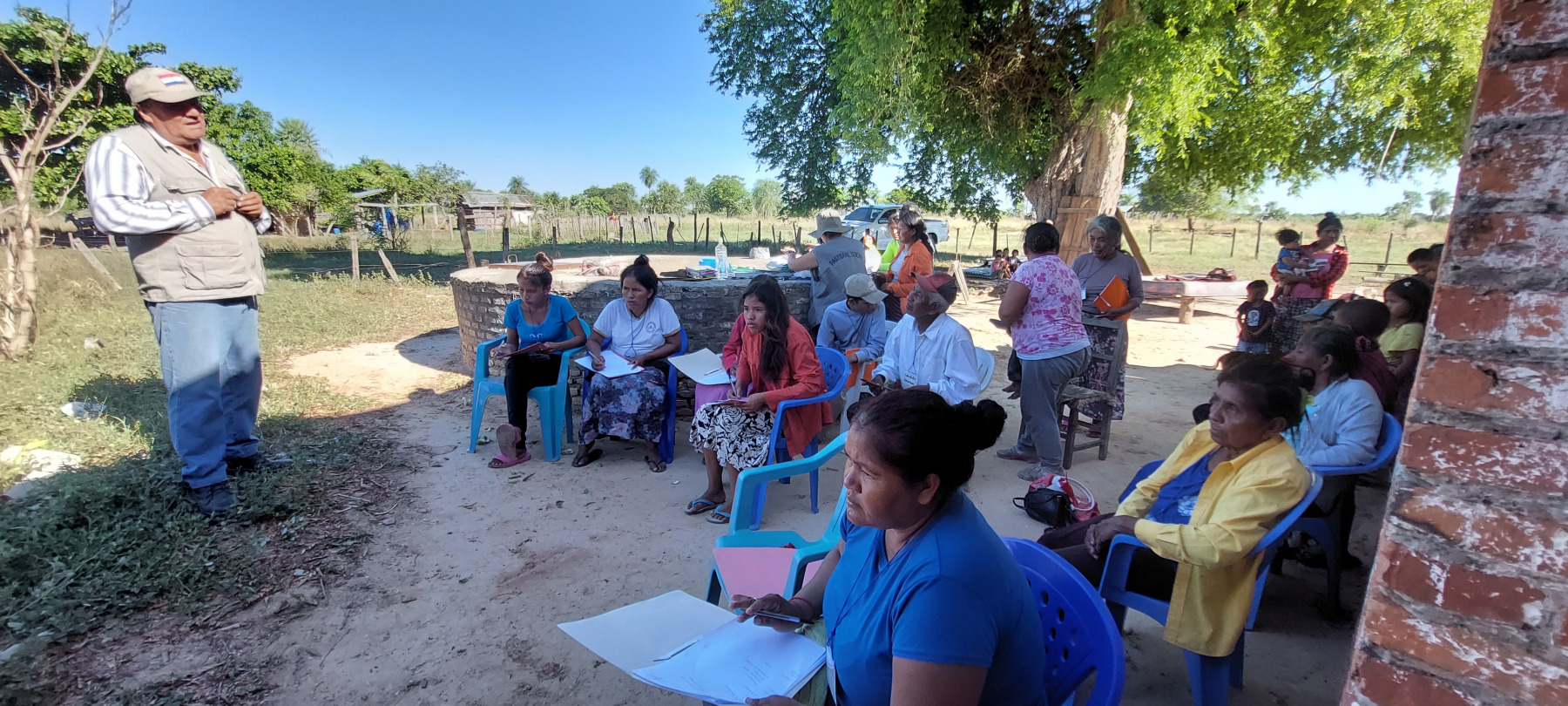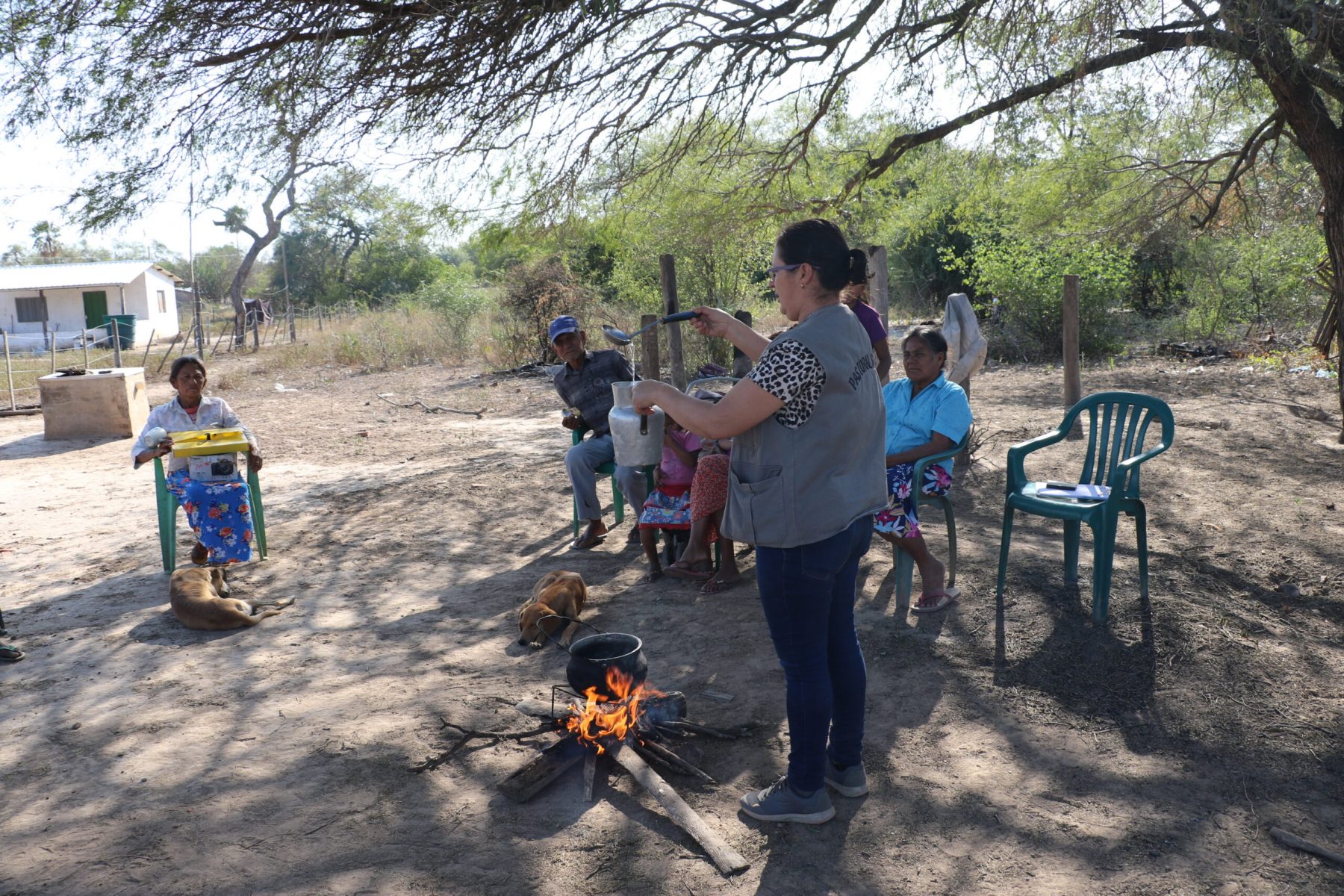Indigenous communities in Paraguay’s Bajo Chaco region are strengthening their resilience through sustainable farming, leadership development, and climate adaptation. With support from CWS and local partners, families are overcoming challenges like drought while building a more secure future.
In Paraguay, families are forging a more resilient future. Through the Comprehensive Rural Development Project, nine indigenous communities in the Bajo Chaco region are gaining essential skills, improving their harvests, and adapting to a changing climate.“The communities are the protagonists of their own development,” says lawyer Raquel Pérez, who coordinates training sessions on participatory and organizational leadership with the support of indigenous facilitators.
Fostering Women’s Leadership
One of the project’s most impactful initiatives has been fostering women’s leadership. Recently, women leaders were invited to share their experiences with individuals from neighboring communities as part of a women’s empowerment training. The goal was to strengthen bonds within villages, elevate women’s leadership, and create a space for knowledge-sharing and mutual empowerment.
“I am happy to share my testimony with the women living in these communities,” says Mariana Ayala, a dedicated leader whose contributions have made a lasting impact. “I want to encourage them to fight for our rights.”
Through this project, CWS and our local partners are working alongside indigenous communities to help families thrive. From improving agricultural practices to finding other ways that families can earn a living, we are helping communities build economic stability and conserve essential resources.
Discipline and Community Participation
In late 2024, a severe drought left many communities struggling to access water, making it difficult to grow crops. Despite these challenges, project participants used their newly acquired skills to persevere through the dry months.
Even in the face of drought, over half of the community gardens remained active across 19 villages, and 70% of families successfully maintained their land. The number of goats and sheep increased, and in 10 villages, 70% of beekeepers sold their honey at fair market prices, securing an income for themselves and their families.
Recognizing the growing impact of climate patterns like El Niño and La Niña, participants took an active role in climate advocacy. They were encouraged to attend 16 meetings of the Departmental Technical Committee on Climate Change to address shifting weather conditions that disrupt wind patterns and rainfall, which add heightened challenges to farming practices.
As a result of these efforts, 15 new water sources were installed, and three others were repaired. Additionally, workshops on water purification were held, and water filters were placed in community spaces like schools—ensuring broader access to clean, safe drinking water.
The dedication of each participant in this project demonstrates that building a future with reliable access to water, education and food security is possible. Their resilience proves that sustainable development is not only achievable but can be inclusive and transformative in the long term.
This program is supported by our local partner, Pastoral Social Diocesana Benjamin Aceval (PSDBA), with the financial support of Growing Hope Globally. To learn more about our work in Latin America, click here.




